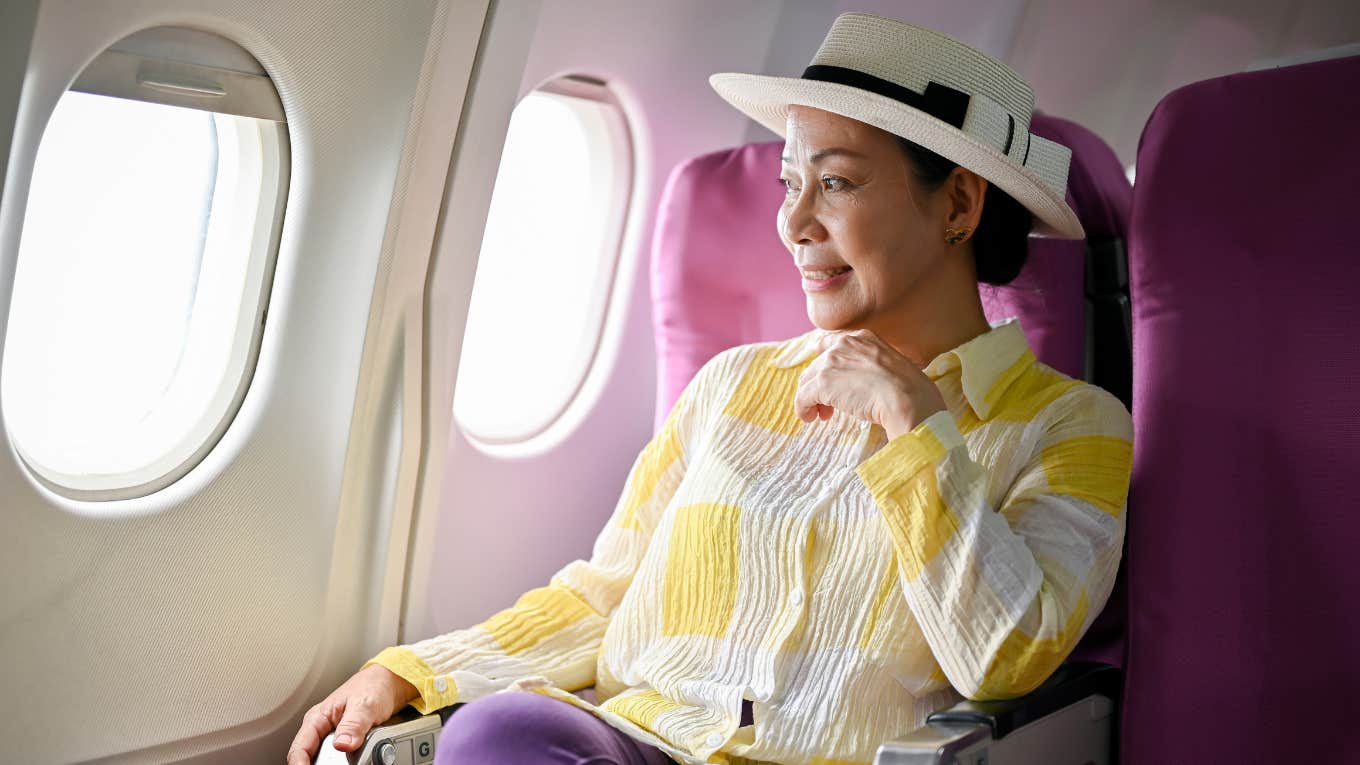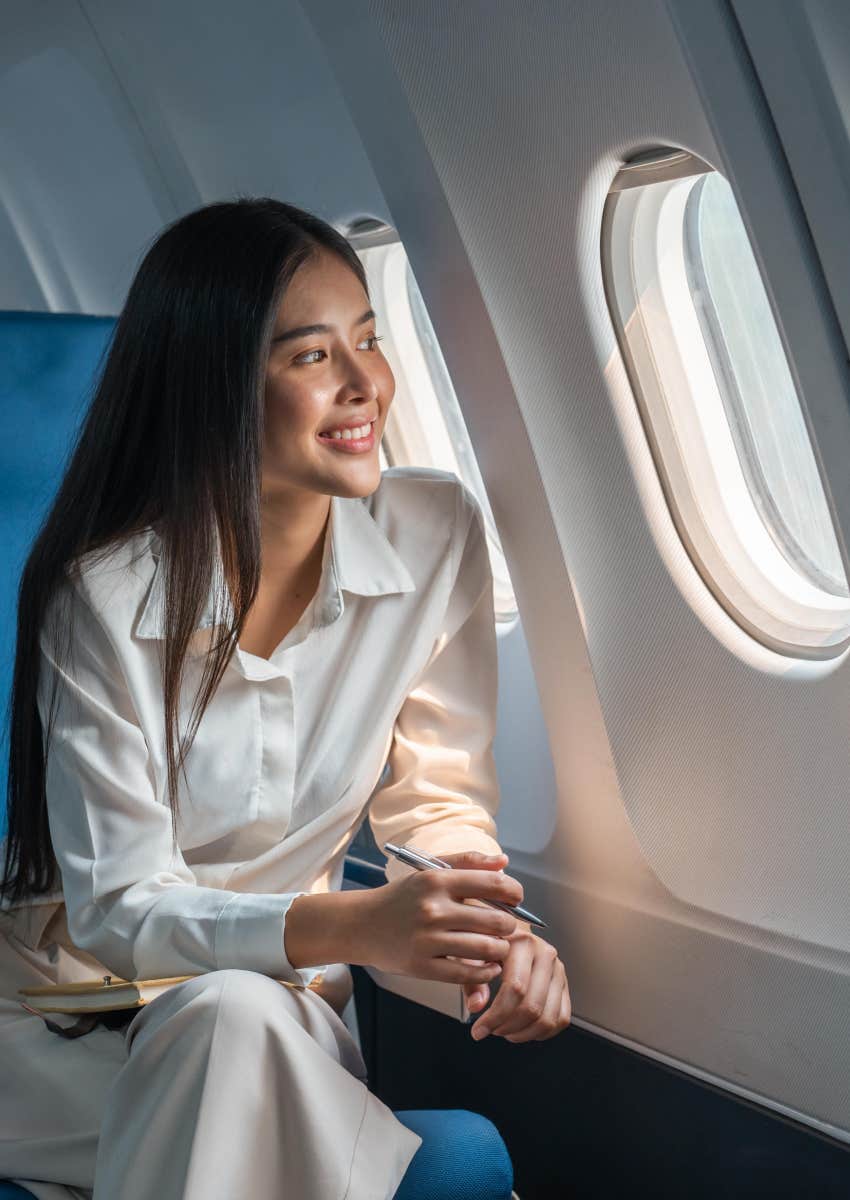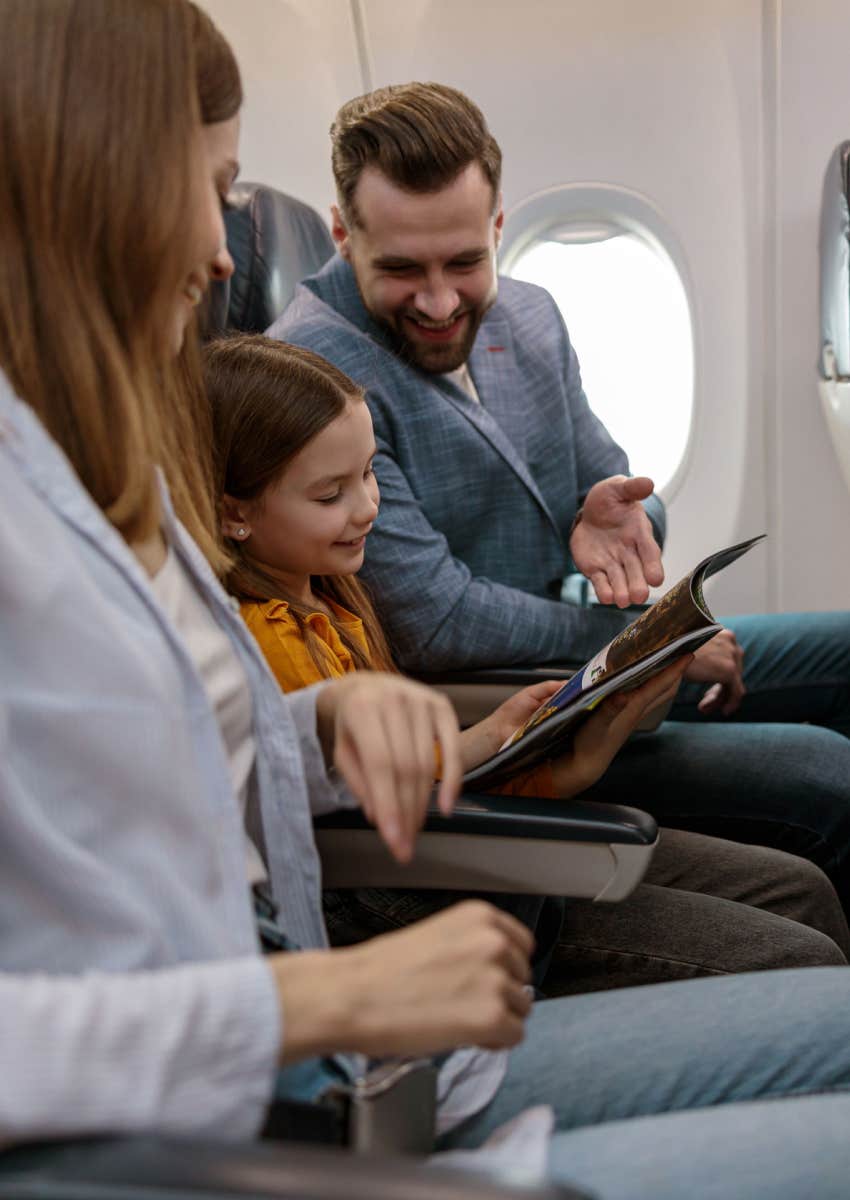Plane Passenger Criticized After Giving Up Her First-Class Window Seat For An Elderly Woman With Dementia
The compassionate decision may have cost one passenger more than it was worth.
 BongkarnGraphic | Shutterstock
BongkarnGraphic | Shutterstock The debate on whether or not passengers should ever switch seats wages on, and one traveler found herself in the middle of it after giving up her first-class seat to an elderly woman with dementia.
In a recent Reddit post, the traveler shared her experience of being repeatedly asked to give up her coveted first-class window seat on a flight. The interaction led to her feeling undervalued and frustrated and ignited a debate on Reddit about expectations, boundaries, and compensation when it comes to switching seats.
A first-class passenger was criticized after giving up her seat for a woman with dementia.
The passenger shared that she was traveling to San Juan, Puerto Rico, and had splurged on a first-class window seat to enjoy the sight of her grandmother’s house while landing. However, while boarding, she was greeted by a woman with dementia sitting in the aisle seat with her daughter.
The daughter explained that the woman had dementia and needed assistance during the flight. At the end of the greeting, the passenger was asked the question most hate to hear when boarding a flight: Would you be able to switch seats?
 Natee Meepian|Shutterstock
Natee Meepian|Shutterstock
Even though the passenger was excited to be sitting in her first-class window seat, she agreed to switch. However, the situation took a turn once boarding continued. The passenger was asked, not once, but twice more, to switch seats by different people.
By the time the third request came, she was fed up — rightfully so — she had paid for the window seat and felt that her generosity was being taken for granted.
Many argued that the passenger should have never switched seats to begin with, regardless of the woman's medical diagnosis.
The Reddit post quickly gained traction, sparking a division of opinion. On one side, users sympathized with the passenger, stating that the initial seat switch was kind and compassionate of her, but the other repeated request felt exploitative.
It was argued that when someone pays for a premium seat, they shouldn't have to give it up multiple times to satisfy the needs of others, especially when there is no acknowledgment or compensation.
On the other hand, some users had completely criticized the passenger for giving up her seat in the first place. It was stated that the daughter and the mother should’ve planned their trip accordingly to ensure the mother had assistance on their flight. It shouldn’t have been at the expense of another passenger to make sure the woman had the accommodations she needed.
As one user noted, "Don’t let other people’s problems become your problems. Sit in your assigned seat. If people need accommodations, they can take it up with the FAs."
Clint Henderson, managing editor of news at the travel website The Points Guy, explained to Fox News that the only way to ever consider switching seats is if the trade is fair or better than the seat you are currently in.
“These days, your seat assignment likely had some kind of cost, whether you paid for it outright or got it as a perk of status,” Henderson said. “Of course, if it’s an even trade and you are a generous person, you are likely to be kind and make the switch — but sometimes people who want your seat are offering you a bad deal on a switch.”
Should kindness and generosity be contingent upon getting something in return?
One of the main issues raised on Reddit was the passenger’s request for compensation for the inconvenience. The passenger suggested that passengers who ask to switch seats should offer something in return, such as a free drink or a tip. This sparked another debate about what is expected in public spaces, especially in premium environments like first class.
The traveler felt that her actions had been generous yet unappreciated and that a simple gesture of gratitude could have made all the difference. But that ultimately begs the question of whether kindness and generosity are actually self-serving acts.
 Friends Stock|Shutterstock
Friends Stock|Shutterstock
This discussion brings up a bigger question: how should one approach favors and sacrifices in a public setting? While it is, of course, important to help others when we can, it is important to take note when requests become burdensome.
Acts of kindness, especially in this situation, shouldn’t feel like an obligation. There should be a mutual exchange in incidents like this, whether in the form of gratitude, acknowledgment, or compensation. This can make a difference in interactions similar to this and feel more respectful.
Had it been open seating, requiring passengers to rush to the seat of their choosing, asking to switch due to physical limitations would have been more acceptable. However, the fact that each passenger has the option to pay for the seat that would make them most comfortable certainly changes the dynamic.
Erika Ryan is a writer working on her bachelor's degree in Journalism. She is based in Florida and covers relationships, psychology, self-help, and human interest topics.
